The Harvest: This Week in Rural China – Dispatch No. 19 (25 April 2025)
Motherhood in Rural China, The 832 Platform, Hainan’s Shifting Landscape, and Xiangcheng’s Chili Boom.
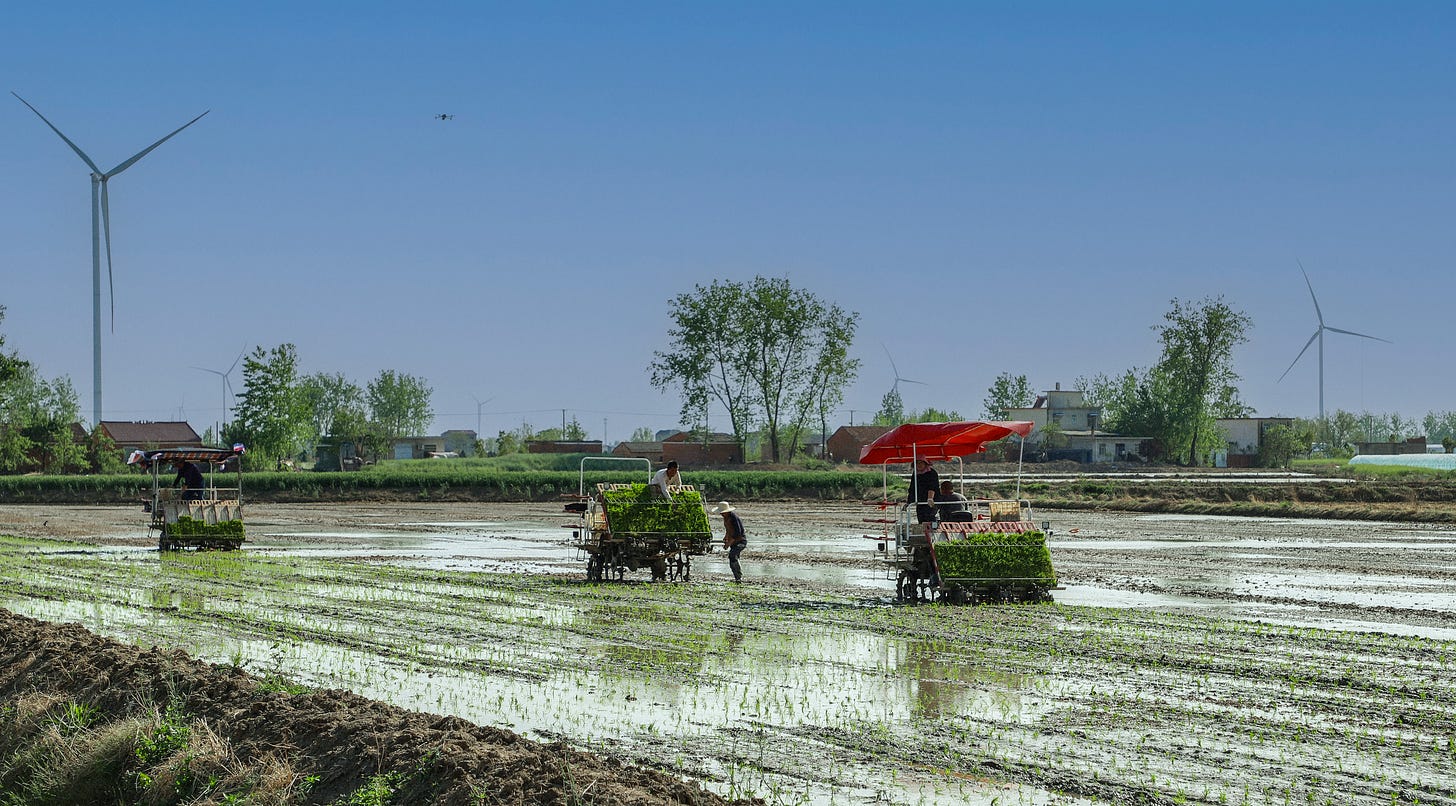
This week, The Harvest brings you a digest of the key developments shaping rural China:
Motherhood, or Not: Rural Women Speak from the Margins
The 832 Platform: A Digital Lifeline for Rural China’s Economic Transformation
Hainan: Outsiders, Opportunity, and Rural China’s Shifting Landscape
Chili Boom in Xiangcheng: How One County is Spicing Up Its Future
I always welcome your insights, as your feedback helps shape the direction of every dispatch. Please share your thoughts in the comments below or reach me at nathan@thisweekinruralchina.com.
As always, The Harvest remains free for all readers. If you find value in these dispatches and want to support the continued work behind them, consider becoming a free or paid subscriber. Your support helps sustain this project and ensures we can continue publishing consistently.
Now, let’s dive into this week’s stories:

Motherhood, or Not: Rural Women Speak from the Margins
The recent airing of a new Korean drama, When Life Gives You Tangerines (폭싹 속았수다), has struck a nerve among rural Chinese women. The show, which explores generational female bonds and the emotional complexities of motherhood, has become more than entertainment—it has acted as a reckoning. Its portrayal of women supporting one another through the unseen labour of care has opened a space for reflection on the stark realities of rural life, where gender expectations, economic constraints, and social isolation press heavily on women of childbearing age.
Set against a backdrop of tradition and change, the drama speaks to a shared experience: women sustaining one another, often without recognition or rest. In rural China, these themes are not merely symbolic. They are lived—intensely and daily. In communities where life is shaped by toil and familial duty, motherhood often becomes an isolating task, compounded by the absence of support and the erosion of local resources. Younger generations migrate to cities, leaving behind older women to carry the weight alone.
The drama has done more than resonate—it has exposed an undercurrent of frustration with the patriarchal structures that continue to define rural women’s lives. Heated online discussion has followed the series, revealing the stories of rural women standing at a crossroads, pulled between the demands of inherited tradition and the creeping arrival of modern, urban ideals. Increasingly, many are beginning to question a model of motherhood that demands self-sacrifice without offering dignity or choice in return.
When Life Gives You Tangerines has held up a mirror to many—quietly, insistently—reflecting struggles that have long gone unspoken. The questions it provokes are not small. What is being asked of rural women? And what do they receive in return? These are personal inquiries, but they carry political weight. As women voice their unease online, they shed light on broader realities: the absence of healthcare, the lack of educational opportunity, and the narrowing of economic futures.
The 832 Platform: A Digital Lifeline for Rural China’s Economic Transformation
The “832 Platform” is an innovative e-commerce initiative designed to help rural, poverty-stricken regions of China sell agricultural products directly to broader markets. Launched by the China Supply and Marketing Group (中国供销集团), the platform connects farmers from 832 designated poverty alleviation counties with consumers and businesses nationwide. This network facilitates the sale of local specialities—ranging from fresh produce to processed goods—by overcoming traditional barriers such as poor infrastructure, market access, and lack of marketing know-how.
The platform’s key strength lies in its comprehensive approach. Integrating e-commerce with supply chain logistics and marketing support enables farmers to reach urban consumers and large-scale buyers that would otherwise be out of reach. For example, in areas like Zigui County, Hubei, where navel oranges were previously sold at low prices due to limited access, farmers have seen prices rise as much as 50% after joining the platform. This not only boosts income for local farmers but also ensures higher quality control and fairer prices.
The 832 Platform serves as more than just a sales channel. It is a vital part of China’s broader poverty alleviation strategy, providing a digital “marketplace” for products from the 832 counties that were once economically isolated. These counties are now able to market their products under distinctive regional brands, such as “832 Fumi” (832福米) rice from Heilongjiang, which is gaining recognition for its premium quality. Local cooperatives help maintain product standards, further enhancing the appeal of these goods.
Beyond the economic impact, the platform supports the shift from a dependency model towards self-sufficiency for rural communities. By collaborating with local governments and private enterprises, the platform enables the creation of sustainable industries that rely on local resources and labour. This helps build long-term economic resilience, moving communities away from aid-dependent models of development.
Ultimately, the 832 Platform represents a pioneering example of how digital technology can address rural development challenges. By connecting producers to national and global markets, it offers a new model for rural revitalisation, empowering farmers and fostering economic independence in previously marginalised regions.
Hainan: Outsiders, Opportunity, and Rural China’s Shifting Landscape
This week, Farmer’s Daily profiled a transformation in Hainan driven by outsiders seeking opportunity in an otherwise shrinking rural economy. Yu Richang, a former city worker from Ganzhou, is one of several profiled who have found a new life in Hainan’s fertile soil. Ten years ago, with no agricultural experience, Yu arrived, drawn by the promise of success in this rich, tropical land. Today, he manages over 800 acres of papayas, bananas, and passion fruit, a sharp contrast to the barren plots he initially encountered.
Yu’s journey is not unique. Countless others like Huang Huoxiu, who left her electronics job in Shenzhen to become a successful farmer, have reshaped their lives through agriculture in Hainan. Their stories reflect the wider trend of urban dwellers migrating to rural areas in search of financial freedom, while revealing much about the state of rural China itself.
Rural China has long faced demographic and economic challenges. The younger generation continues to abandon the countryside for urban life, leaving behind an ageing population and a growing shortage of agricultural workers. In response, regions like Hainan have seen an influx of migrants, or “outsiders,” eager to take on agricultural work where locals are increasingly absent. These newcomers, often entrepreneurs from other provinces, fill gaps in the labour market, driving growth in areas like tropical agriculture.
However, this influx of outsiders highlights the fragility of rural economies. As more land is leased to those who can afford it, local farmers are being priced out. Land, once abundant, has become scarce and expensive, with high demand from entrepreneurs like Yu. Despite the rising costs and the pressures of managing large plantations, Yu has no regrets. The land, once unfamiliar, has provided not just financial success, but a new life.
The story of Yu and others like him offers a snapshot of the changing socio-economic landscape in rural China. As urbanisation continues to hollow out the countryside, outsiders are becoming key players in agricultural revitalisation. While this may offer short-term solutions to labour shortages, it also raises important questions about the long-term sustainability of rural economies. The future of farming in China may depend not just on the ability of outsiders to fill the gaps left by those who have moved on, but also on whether this new model can support local communities without displacing them entirely.
Chili Boom in Xiangcheng: How One County is Spicing Up Its Future
Xiangcheng County in Henan has long been known for its agricultural richness, but one crop in particular is driving both local and national growth: the chili pepper. As the transplanting season kicks off this month, the fields of Shuikeng Chen village are alive with the hum of machinery as dozens of transplanting machines work their way across the fertile land.
Chili farming in Xiangcheng has evolved dramatically since its introduction in 1995. Today, the county boasts over 106,000 acres dedicated to chilli cultivation, with plans to expand this to 130,000 acres by the end of 2025. This growth is powered by significant governmental support, from funding to modern farming techniques, making Xiangcheng one of China’s largest producers of this fiery crop.
The shift from manual to mechanised farming has brought efficiencies, allowing local farmers to increase yields and reduce labour costs. The county’s chili industry is no longer just a staple of rural life—it’s a thriving economic force. With over 300 chili brokers and more than 100 sales points across the region, the market continues to expand, driven by demand for the peppers that now reach all corners of China, from Sichuan’s spice-filled kitchens to the cold reaches of Northeast China.
A key part of this success is the county’s robust infrastructure. Around 70 cold storage facilities ensure that chillies can be preserved and sold year-round. With an annual storage capacity of more than 3,000 tons, these warehouses guarantee farmers a stable income, even in the off-season.
Yet Xiangcheng’s story is not just one of economic growth—it’s a testament to the resilience of a community that has embraced modernisation while maintaining its agricultural heritage. By combining technology with tradition, Xiangcheng is setting a new standard for rural development in China.
Between Mountains and Waters - Photo of the Week for 25 April 2025
On 23 April, farmers in Zhuma Town, Henan Province, were busy harvesting honey. As the acacia, paulownia, and rapeseed flowers bloom, beekeepers are seizing the moment to place hives and collect honey. In recent years, local farmers have capitalised on the abundance of flowering plants to engage in beekeeping, boosting their incomes and creating opportunities for wealth. This thriving industry has helped improve the livelihoods of many in the region.
Photo by Zhang Zibin, China Agricultural Network





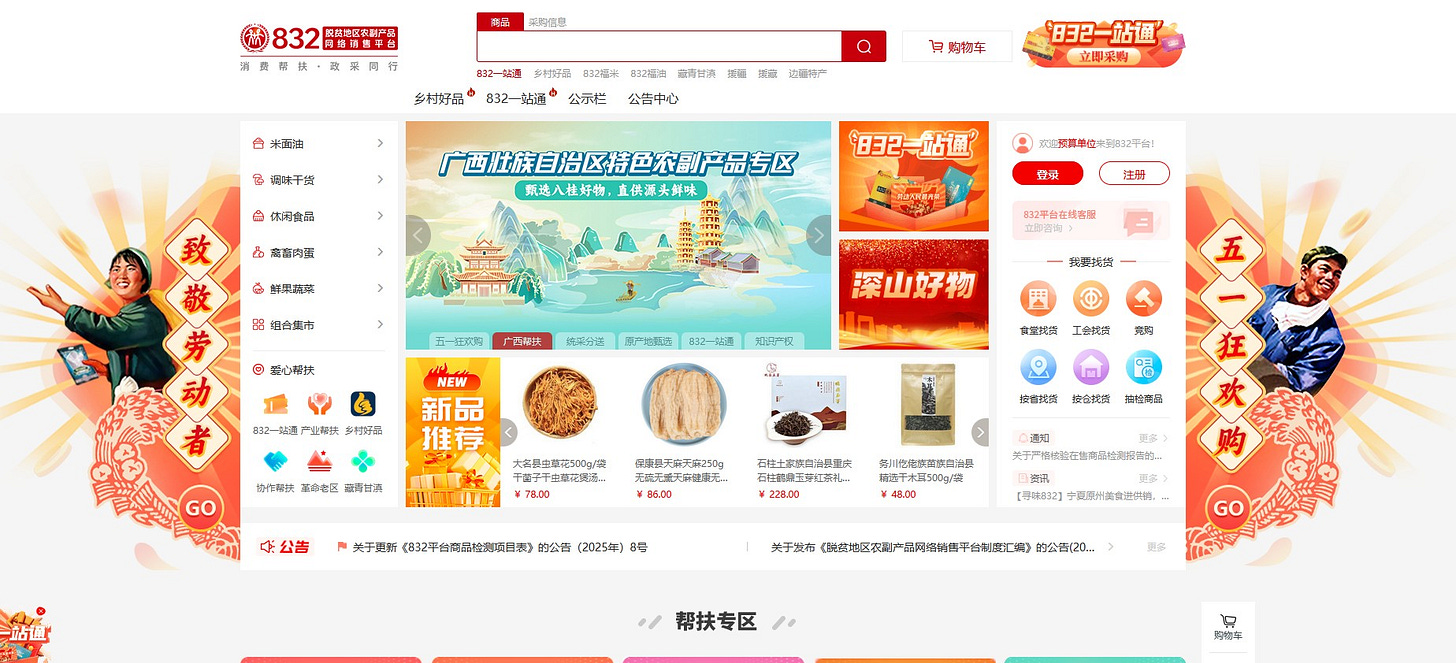
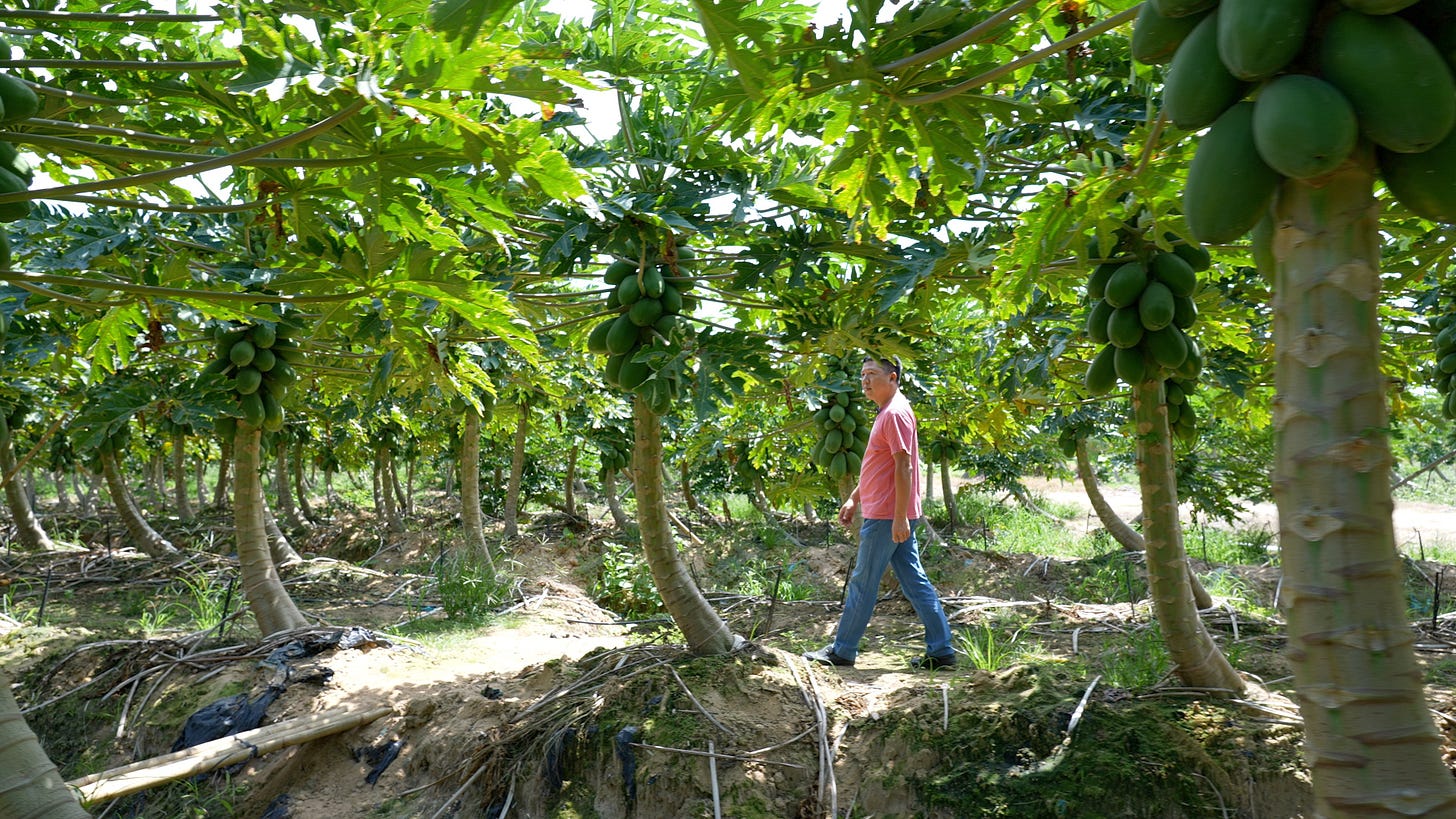
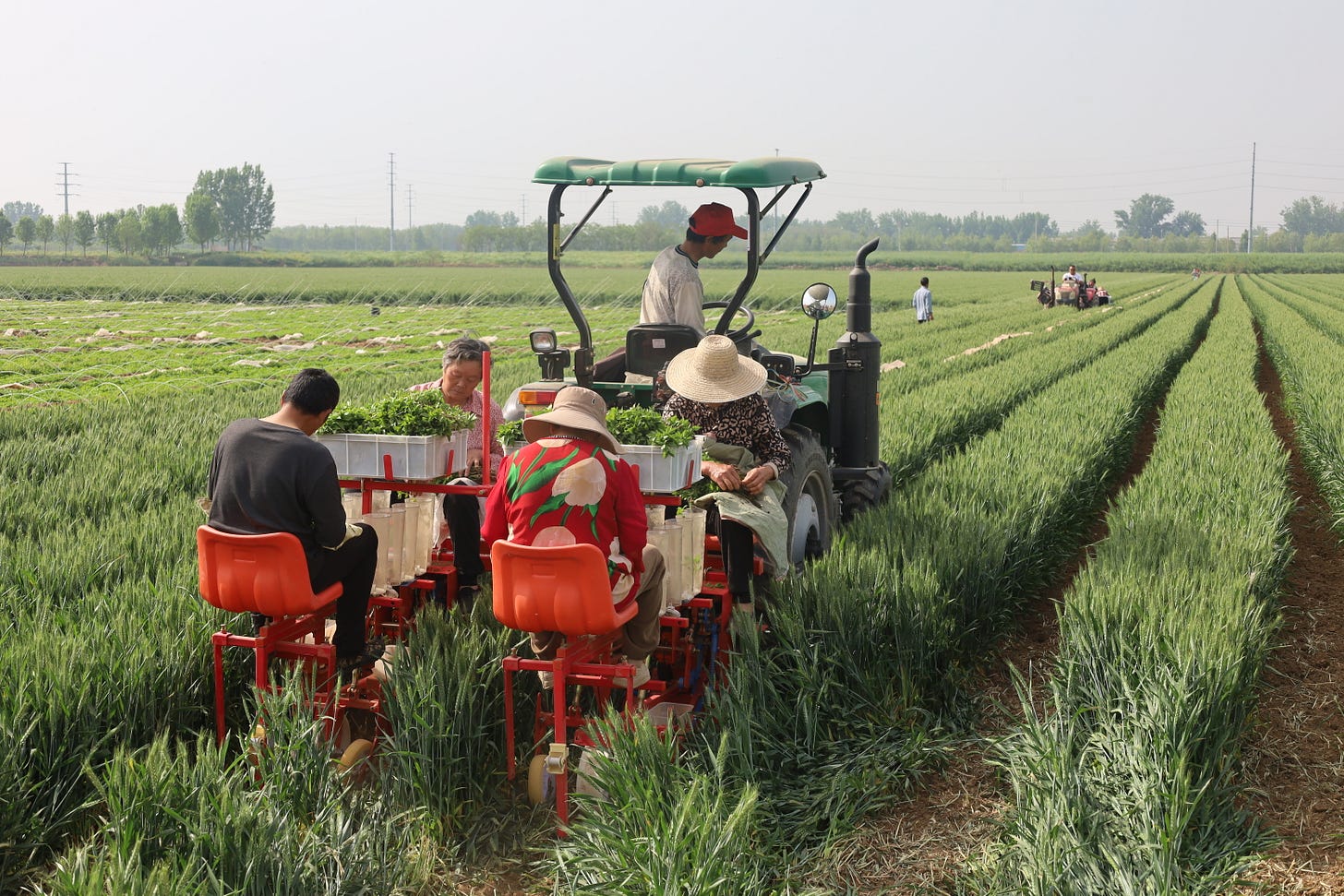
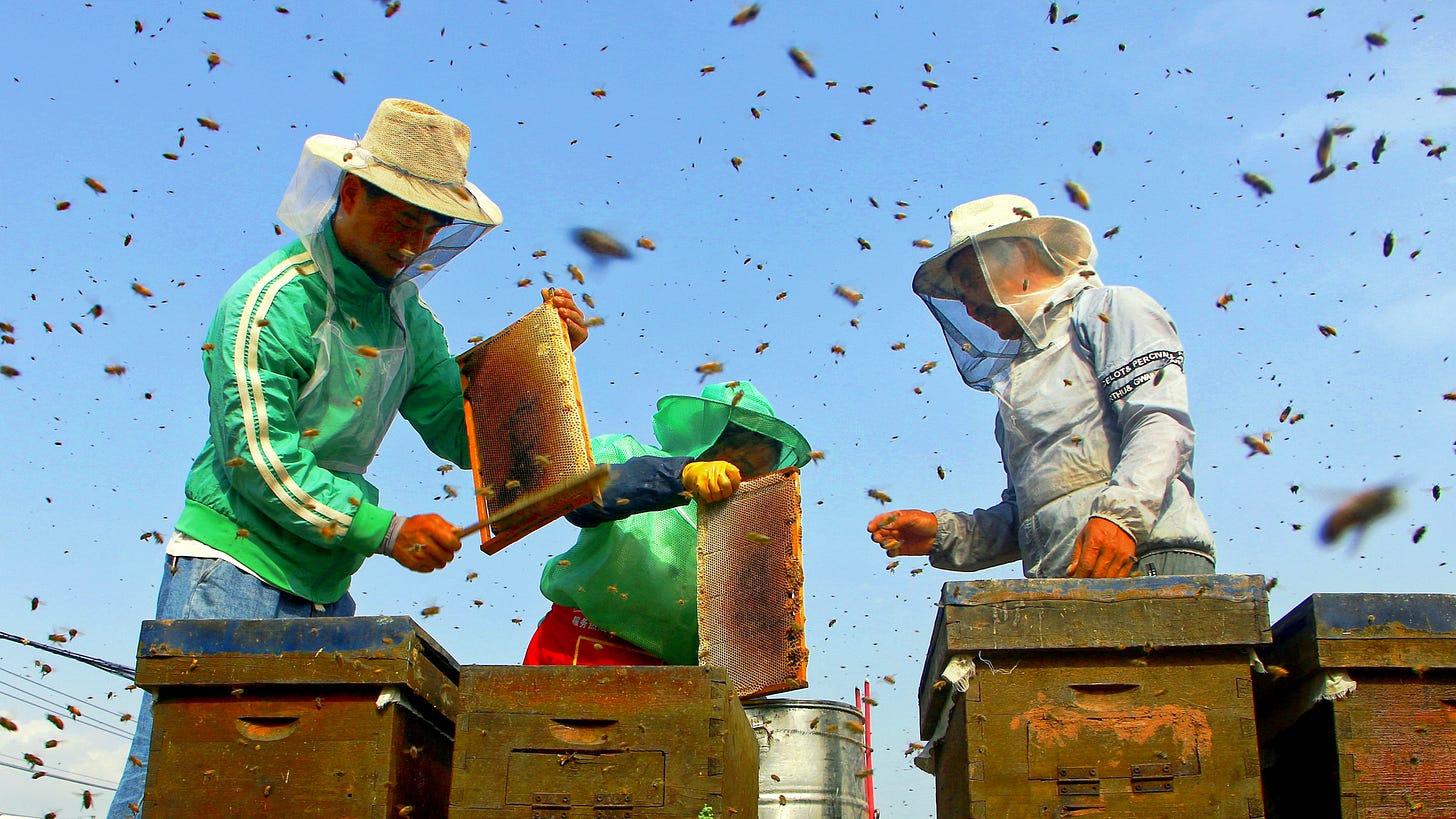
Extremely interesting! Thank you.